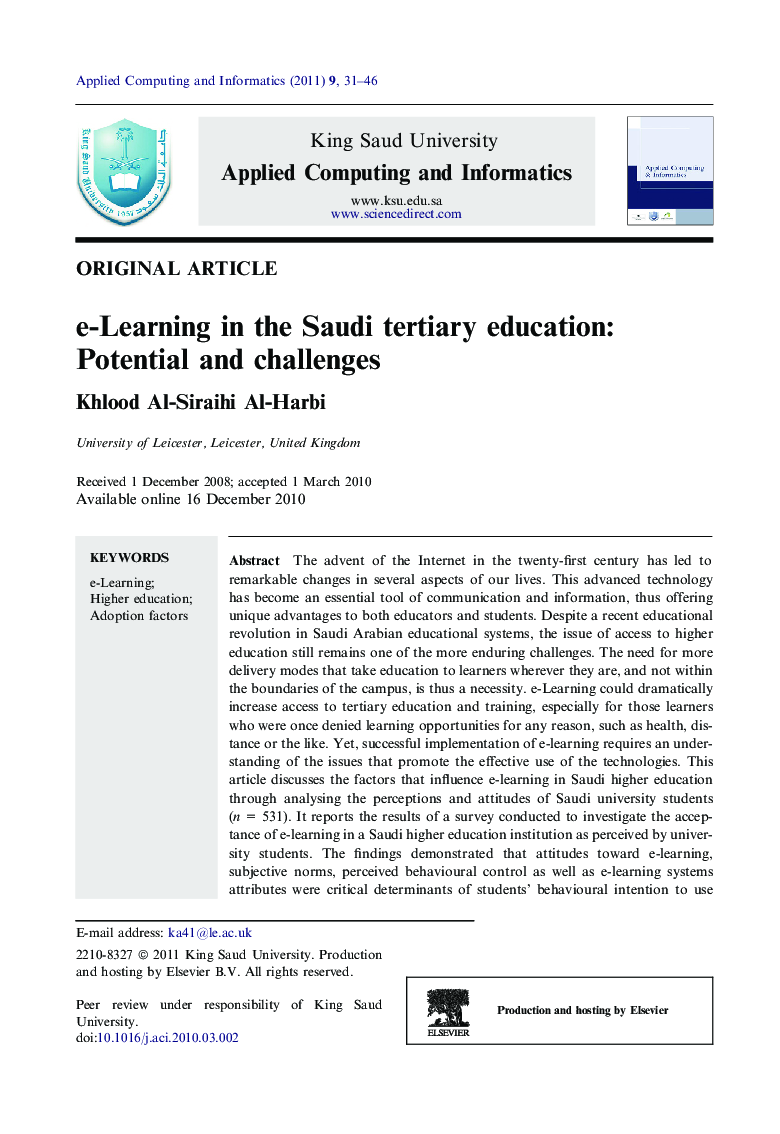| Article ID | Journal | Published Year | Pages | File Type |
|---|---|---|---|---|
| 467407 | Applied Computing and Informatics | 2011 | 16 Pages |
The advent of the Internet in the twenty-first century has led to remarkable changes in several aspects of our lives. This advanced technology has become an essential tool of communication and information, thus offering unique advantages to both educators and students. Despite a recent educational revolution in Saudi Arabian educational systems, the issue of access to higher education still remains one of the more enduring challenges. The need for more delivery modes that take education to learners wherever they are, and not within the boundaries of the campus, is thus a necessity. e-Learning could dramatically increase access to tertiary education and training, especially for those learners who were once denied learning opportunities for any reason, such as health, distance or the like. Yet, successful implementation of e-learning requires an understanding of the issues that promote the effective use of the technologies. This article discusses the factors that influence e-learning in Saudi higher education through analysing the perceptions and attitudes of Saudi university students (n = 531). It reports the results of a survey conducted to investigate the acceptance of e-learning in a Saudi higher education institution as perceived by university students. The findings demonstrated that attitudes toward e-learning, subjective norms, perceived behavioural control as well as e-learning systems attributes were critical determinants of students’ behavioural intention to use e-learning. By explaining students’ behavioural intentions, the findings of this study will help to provide insight into the best way to promote e-learning acceptance among students.
